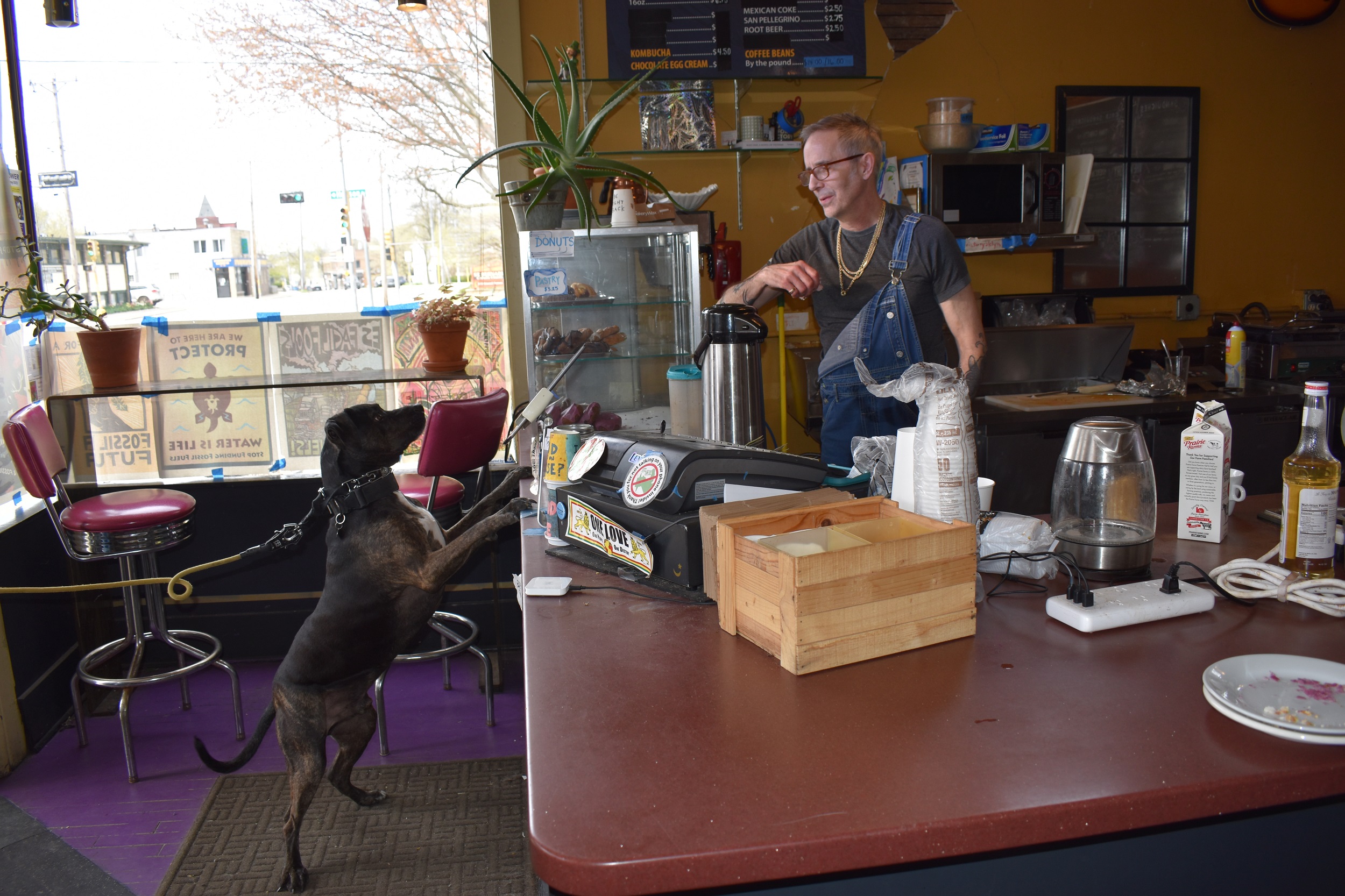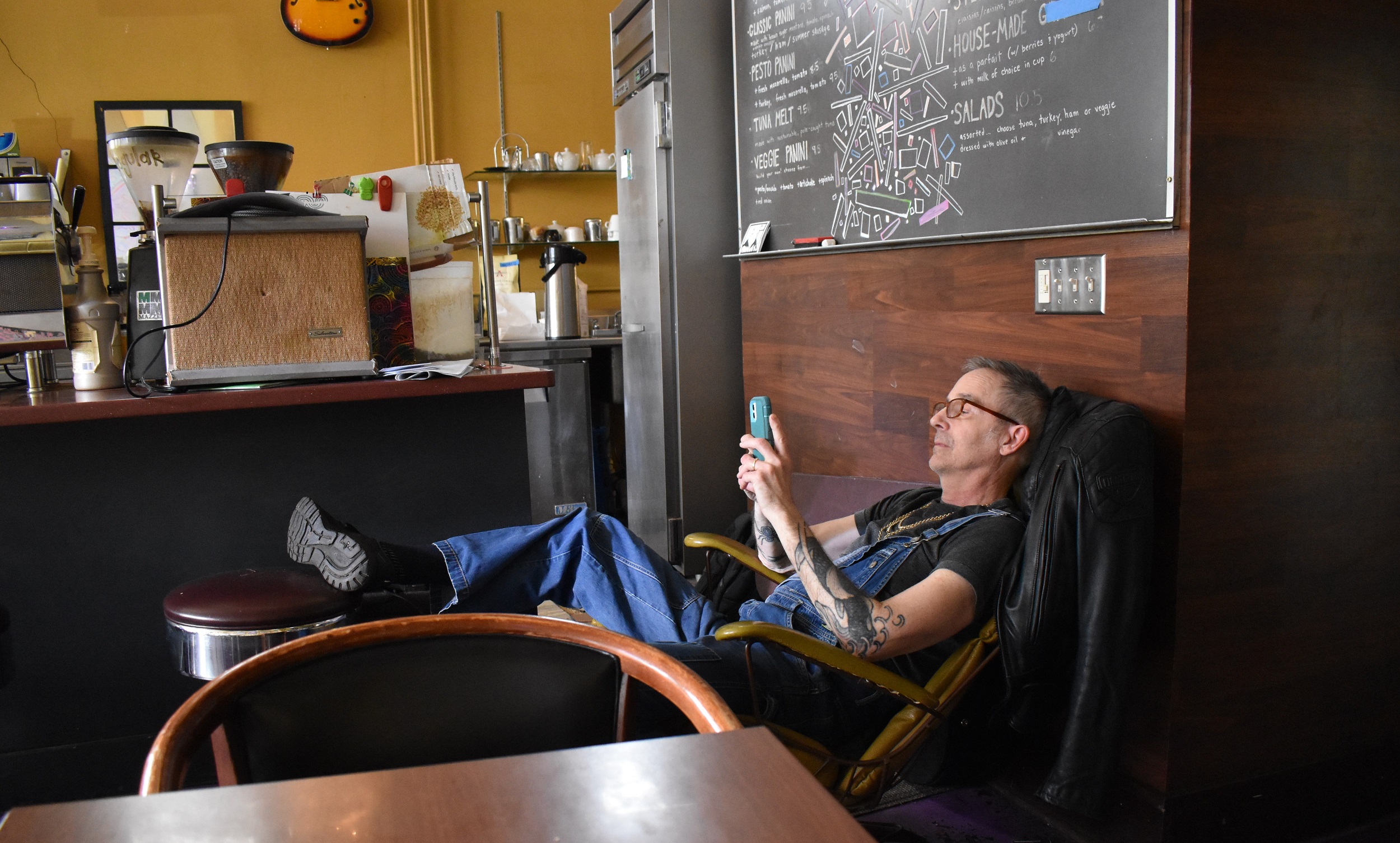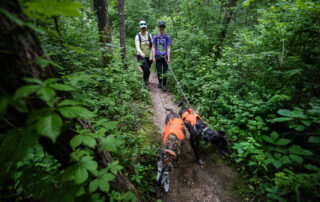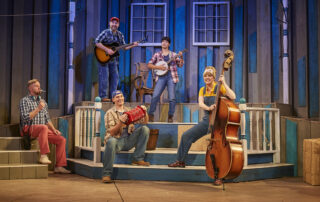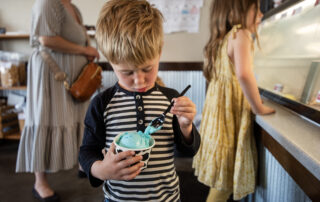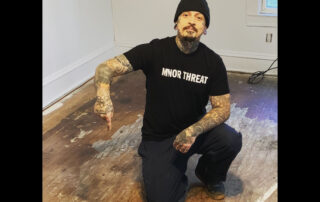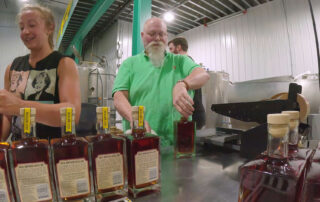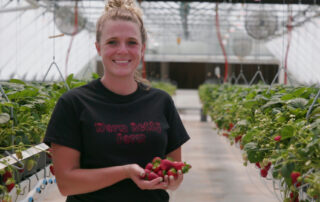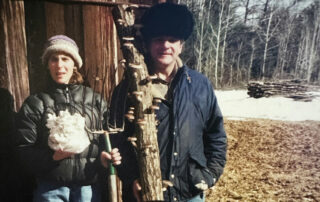Patrick Downey opened The Victory in Madison, Wisconsin, at 2710 Atwood Ave., in August of 2010 after he and his wife moved to the city in 2009 to raise their family. But the café has a long history, originating in Brooklyn in 1999.
Downey shared the history of the café and his philosophy as a business owner with WPR’s Alyssa Allemand, who has compiled her favorite quotes from the interview.
Editor’s note: This story was produced in collaboration with Tone Madison, an independent website covering culture and politics in Madison. Check out their version of this story to read more on Downey’s time in Brooklyn, his sense of community, and the perks of being a Victory regular.
(The quotes have been edited for brevity and clarity)
On opening
“I had been living in Brooklyn for about 10 years when I opened the shop. I really liked that Brooklyn was a lot more, like, if you saw someone in that neighborhood, chances were that they lived there. They weren’t just passing through. And if you knew someone, there was no real reason to pretend you didn’t… So I decided right away that even if — God forbid — I didn’t like you, I wasn’t going to pretend I didn’t know you, I didn’t know your order.”
“The reason I opened a coffee shop is that I needed a job I couldn’t quit. I was almost 40 and I thought, it’s cute when you’re quitting all these jobs. But when you’re 40, it’s just like, ‘What’s wrong with this guy?’ So I got a job I couldn’t quit. And I haven’t. Even though the early days in Brooklyn were like, rough. Really, really, really, really rough.”
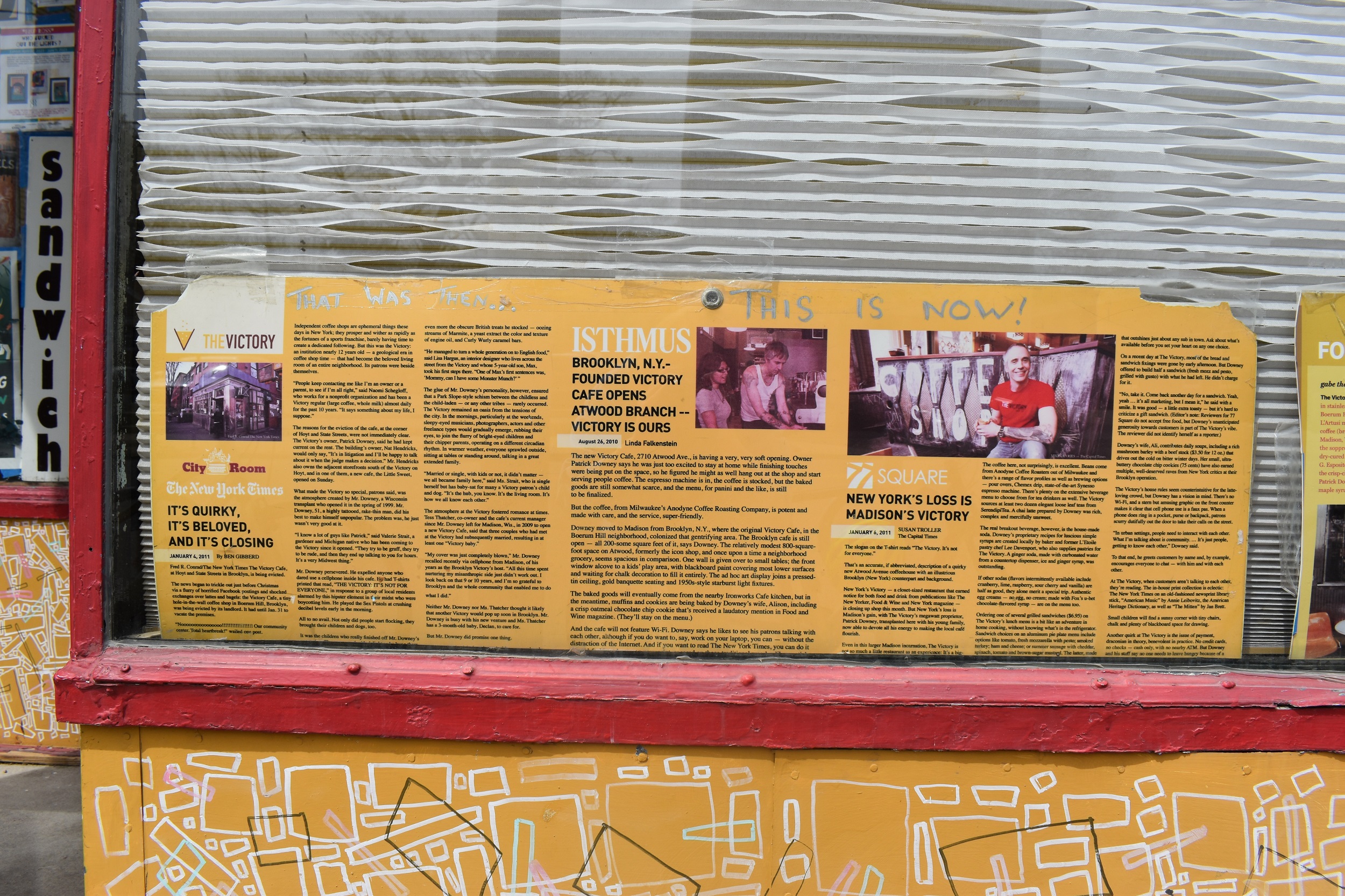
On the outside of one of the cafe’s windows, Downey shows off previous profiles written about The Victory, from his time in Brooklyn to his move in Madison. “That was then…” Downey wrote. “This is now!” (Alyssa Allemand/WPR)
“If you could say that your everyday life is supposed to be something to do with art, then I guess that’s how I approach this.”
“I actually don’t think of this as a New York style shop. I think of this as a shop that just happened to be in New York. I think of it as more of like, if you go to some small town and you go into the diner with the farmer sitting in the back and there’s like this smartass waitress who really wants you to be happy. But, you know, you’d better not get out of line. Like, that’s me.”
“In terms of culture, we just brought our own culture.”

Patrick Downey stands behind the counter at The Victory, staring at a latte he just made, on April 28, 2023. (Alyssa Allemand/WPR)
On building community in Madison
“We were advised to look on the east side by people that we knew in Madison… I saw this space on Craigslist when I was still in Brooklyn, and I really liked the windows. Since I knew I would be here a lot, I wanted it to be a space that I like looking at and like looking out the window.”
“This is where I spend most of my life. Oftentimes I think people feel like the time that they spend getting their coffee…should get subtracted out of their life because it isn’t worth as much as like the time they spend doing something meaningful.”
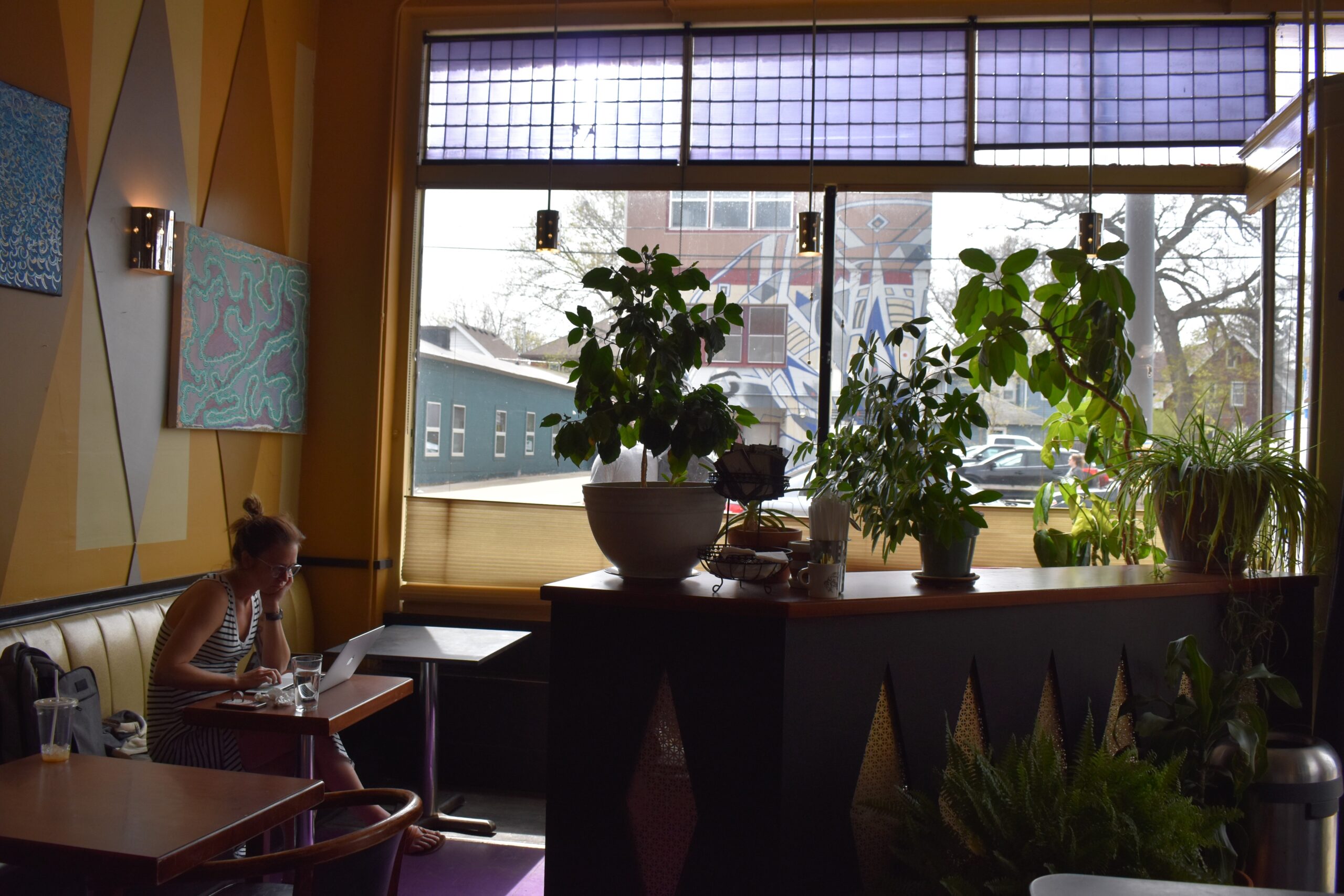
Plants sit on a counter in front of a wall of windows at The Victory in Madison, Wisconsin. A woman to the left works on her laptop at one of the tables on April 28, 2023. (Alyssa Allemand/WPR)
“I would say that 90 percent of the people that come here, come here very regularly. In Brooklyn, if you liked my shop, I would see you every day until you moved out of the neighborhood. Madison is a little bit different because people have cars, but a lot of people come here every day.”
“(Which) means that we’re still open and…I’m paying my bills and feeding my kids, etc… So the fact that the people that like it really like it is probably the difference between having to get a job and being able to keep doing this.”
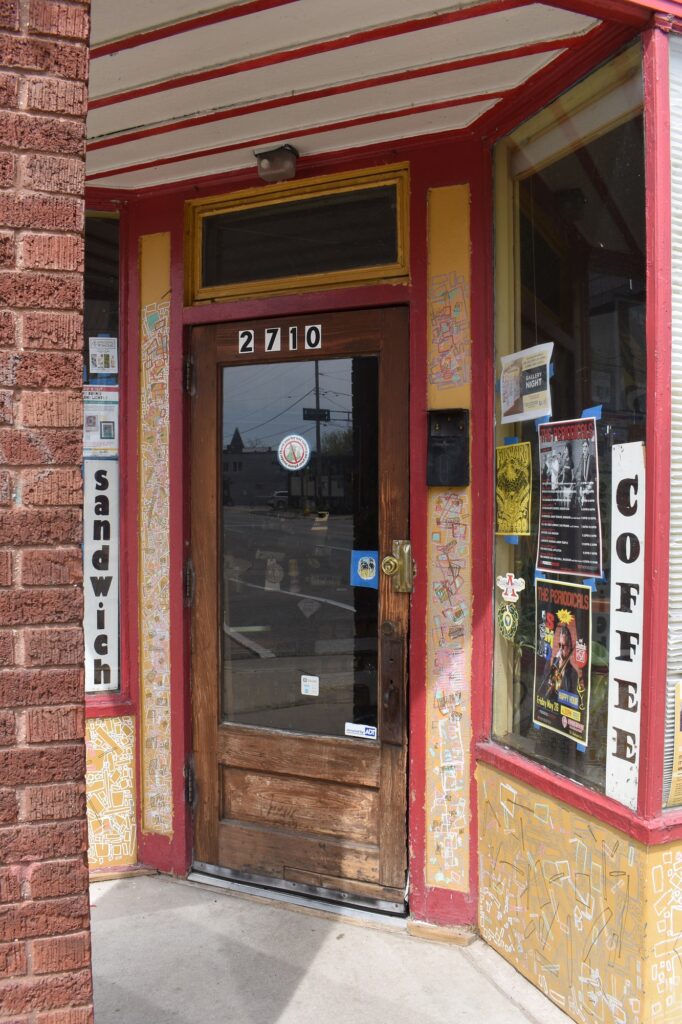
The Victory is located at 2710 Atwood Ave. on Madison’s east side. The outside of the building is filled with Downey’s doodles and various posters for local events. (Alyssa Allemand/WPR)
“I feel like this is kind of a community with a small C. And this is going to sound a little judgmental — I feel like a lot of people do a lot of talking about community and very little in terms of where the rubber meets the road. And I actually feel very strongly that in my case, I do in fact put my money where my mouth is in terms of really trying to build a sense of community here so that if you come in here, I know what you like I don’t pretend I don’t remember your order. I don’t pretend I don’t know your name.”
“Apart from my usual smartass persona, like, I really value that — I like that people come here and feel that it gives them something more than just me being a human coffee vending machine.”
“If you come through the door of my shop, I have an almost pathological need to make you happy.”
“I guess I would say that I haven’t always been like this in terms of caring about whether or not I had a positive impact on someone else’s day. I think it’s fair to say that when I was in my twenties and thirties, I really didn’t care that much. I’m not exactly sure what changed, but I did start to care a lot more… But it didn’t occur to me until I came to Madison that the people that came didn’t just spend money. They showed me a great deal of love, and I just wasn’t really prepared to acknowledge that that was something people could give to each other except in family or friends. The idea of that kind of love being a really sustaining and necessary kind of love for me, I knew that they felt that way because people would say how important my little shop was to the neighborhood or to them.”
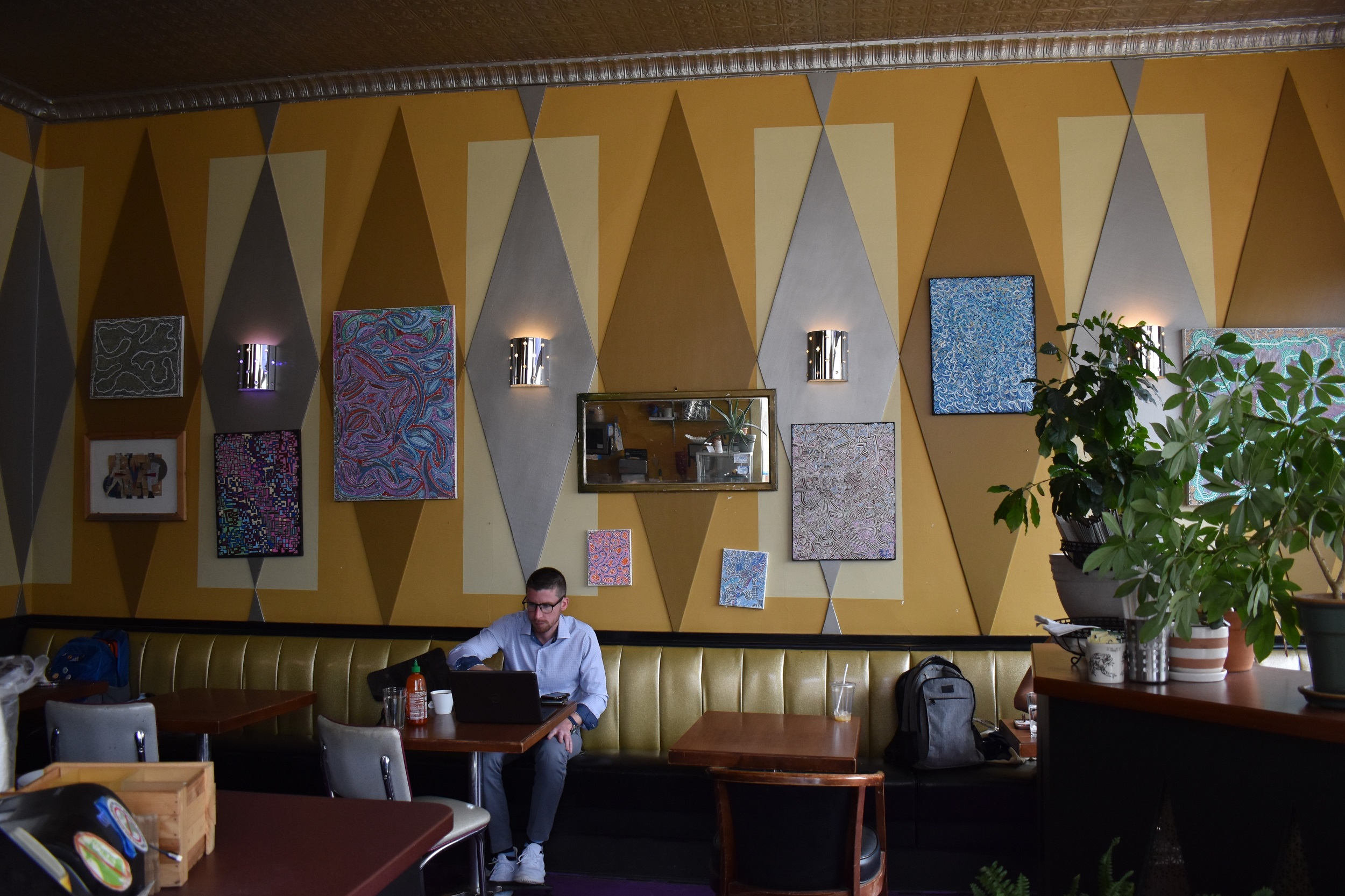
A customer works on a laptop at one of the tables at The Victory. The walls are filled with gold and silver diamonds and feature owner Patrick Downey’s artwork that can be purchased. (Alyssa Allemand/WPR)
On music and his ‘little corner of the universe’
“I have played music for most of my life, just mostly for myself, but sometimes in bands. And so I’ve never really given up the idea that I might have some song or two to contribute to the culture. So I play music. I don’t play it in here, nor do I allow people to play in here. But we do play music that I like, and I have a really good sound system. And it’s not background music, which sometimes upsets people because they want it to be quieter, which sometimes we do for little kids. We do it (for) very old people. But if you’re between 15 and 55, you’re just going to have to deal with it. And I make (art).”
“This is just like my little corner of the universe. And so the stuff I tell people when I hire them — with hopefully a certain amount of humor — (is,) ‘Everything here is about me.’ So, I mean, I run the shop the way I want. I play the music I want to, put stuff on the wall that I want. And, you know, it’s a little tiny corner of the world, but it’s mine.”
